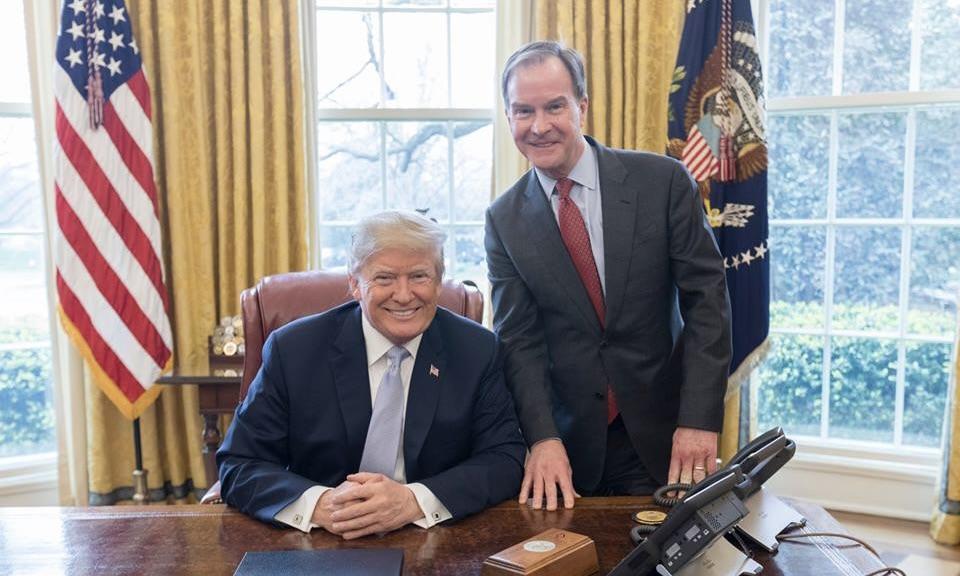Donald Trump’s administration has unveiled a bold plan to bolster American startups in 2025, focusing on deregulation, tax incentives, and investment in innovation hubs. While supporters hail the initiative as a lifeline for entrepreneurs, skeptics argue the policies may favor established corporations over fledgling ventures.
Tax Breaks and Reduced Regulation: A Startup Dream?
Central to Trump’s strategy is the introduction of tax breaks for small businesses and first-time entrepreneurs. The administration has proposed slashing the corporate tax rate for startups and offering credits for companies in their initial five years of operation. According to White House officials, these measures aim to reduce financial burdens and encourage risk-taking.
The administration also plans to cut red tape, streamlining the approval process for permits and licenses. Advocates argue this will enable startups to scale faster, especially in sectors like technology and green energy. However, critics warn that deregulation could lead to exploitation and weaken consumer protections.
Economic analysts note that the success of this initiative will depend on its implementation. While tax relief could provide immediate benefits, some fear the long-term impact on federal revenues might strain public programs vital to small businesses, such as affordable healthcare options for employees.
Funding Innovation Hubs and Tech Startups
The administration has announced plans to invest in regional innovation hubs, focusing on areas outside traditional tech centers like Silicon Valley. By partnering with universities and private investors, Trump aims to spur job creation in economically struggling regions.
Trump’s team has also pledged to expand funding opportunities for minority-owned startups and women entrepreneurs. Through grants and low-interest loans, the initiative seeks to address systemic barriers and promote diversity in business leadership.
Despite these promises, some question the feasibility of equitable fund distribution. Critics point to previous programs where large corporations disproportionately benefited from incentives intended for smaller businesses. Furthermore, the administration’s focus on high-tech industries has raised concerns about neglecting traditional small businesses like local restaurants and retailers.
Netizens Share Mixed Reactions to Startup Policies
The startup plan has sparked lively debate on social media, with opinions sharply divided:
- @InnovateUSA: “Finally, a president who understands entrepreneurship! Trump’s policies could unleash the next wave of American innovation.”
- @SmallBizMom: “I’ll believe it when I see it. Big corporations always seem to grab the biggest slices of the pie.”
- @TechFuture2025: “Expanding innovation hubs could bring tech jobs to rural areas. This is the change we need!”
- @EcoBizWatch: “What about sustainability? Deregulation might help profits but could harm the environment. We can’t afford that trade-off.”
- @DiverseVoicesNow: “Minority-owned startups deserve more support, but will the funds actually reach them?”
- @MainStreetMatters: “Small-town businesses might get left out again. Focus on ALL startups, not just the shiny tech ones.”



 Trump Warns Iran as Gulf Conflict Disrupts Oil Markets and Global Trade
Trump Warns Iran as Gulf Conflict Disrupts Oil Markets and Global Trade  U.S.-Iran Nuclear Talks Show Progress but No Breakthrough Amid Rising Military Tensions
U.S.-Iran Nuclear Talks Show Progress but No Breakthrough Amid Rising Military Tensions  Federal Judge Blocks Virginia Social Media Age Verification Law Over First Amendment Concerns
Federal Judge Blocks Virginia Social Media Age Verification Law Over First Amendment Concerns  Venezuela Oil Exports to Reach $2 Billion Under U.S.-Led Supply Agreement
Venezuela Oil Exports to Reach $2 Billion Under U.S.-Led Supply Agreement  Trump Floats “Friendly Takeover” of Cuba as Rubio Reportedly Engages in Talks
Trump Floats “Friendly Takeover” of Cuba as Rubio Reportedly Engages in Talks  Iran Supreme Leader Ayatollah Ali Khamenei Killed in Israeli, U.S. Strikes: Reuters
Iran Supreme Leader Ayatollah Ali Khamenei Killed in Israeli, U.S. Strikes: Reuters  Israel Declares State of Emergency as Iran Launches Missile Attacks
Israel Declares State of Emergency as Iran Launches Missile Attacks  Germany and China Reaffirm Open Trade and Strategic Partnership in Landmark Beijing Visit
Germany and China Reaffirm Open Trade and Strategic Partnership in Landmark Beijing Visit  Trump Media Weighs Truth Social Spin-Off Amid $6B Fusion Energy Pivot
Trump Media Weighs Truth Social Spin-Off Amid $6B Fusion Energy Pivot  Russia Signals Openness to U.S. Security Guarantees for Ukraine at Geneva Peace Talks
Russia Signals Openness to U.S. Security Guarantees for Ukraine at Geneva Peace Talks  Denver Mayor Orders Police to Protect Protesters, Restricts ICE Access to City Property
Denver Mayor Orders Police to Protect Protesters, Restricts ICE Access to City Property  Trump Orders Federal Agencies to Halt Use of Anthropic AI Technology
Trump Orders Federal Agencies to Halt Use of Anthropic AI Technology  USITC to Review Impact of Revoking China’s PNTR Status, Potentially Raising Tariffs on Chinese Imports
USITC to Review Impact of Revoking China’s PNTR Status, Potentially Raising Tariffs on Chinese Imports  U.S.-Israel Strike on Iran Escalates Middle East Conflict, Trump Claims Khamenei Killed
U.S.-Israel Strike on Iran Escalates Middle East Conflict, Trump Claims Khamenei Killed  Pentagon Leaders Monitor U.S. Iran Operation from Mar-a-Lago
Pentagon Leaders Monitor U.S. Iran Operation from Mar-a-Lago  Netanyahu Suggests Iran’s Supreme Leader Khamenei May Have Been Killed in Israeli-U.S. Strikes
Netanyahu Suggests Iran’s Supreme Leader Khamenei May Have Been Killed in Israeli-U.S. Strikes  Pentagon to Halt Ivy League Programs for U.S. Military Officers Starting 2026
Pentagon to Halt Ivy League Programs for U.S. Military Officers Starting 2026 
































